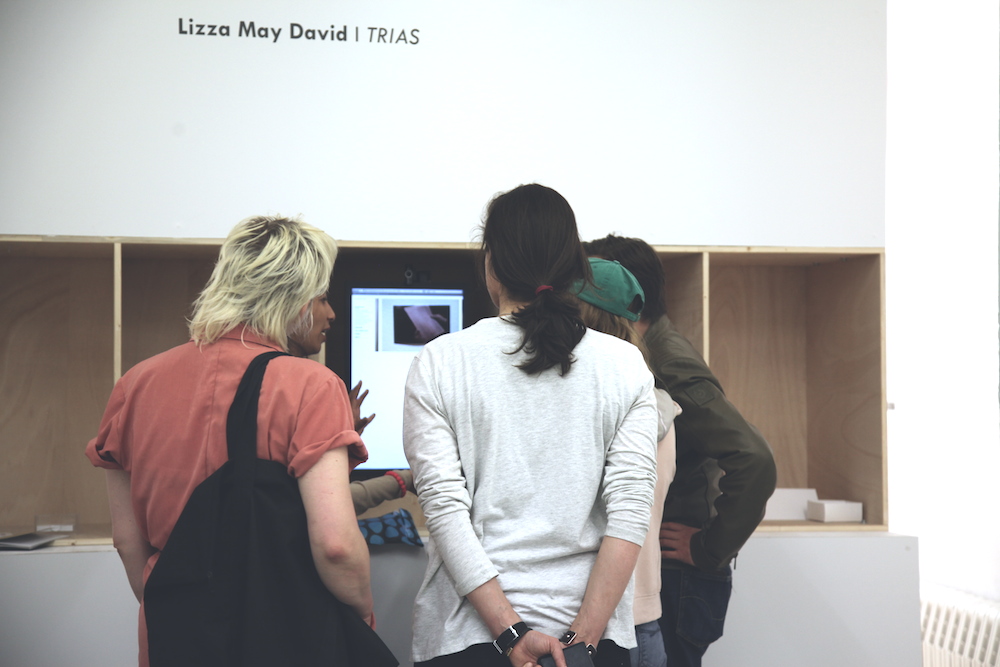


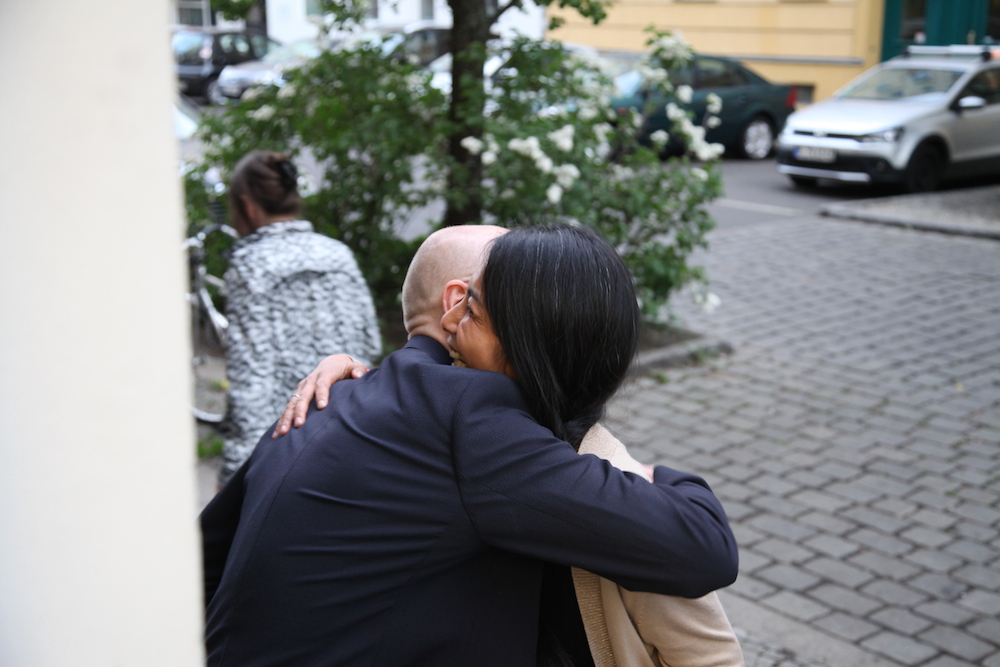
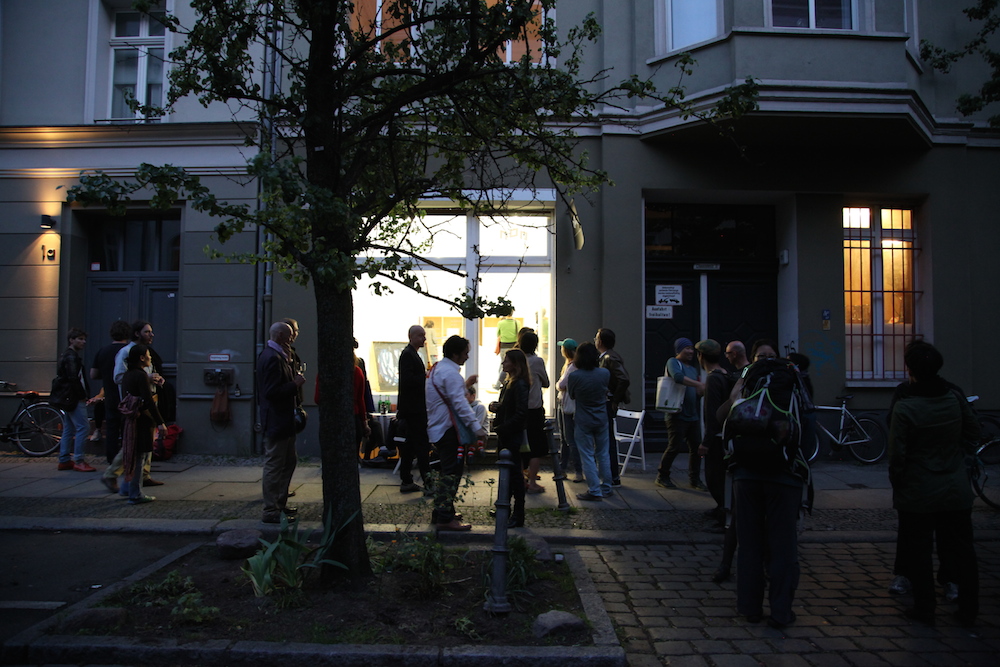
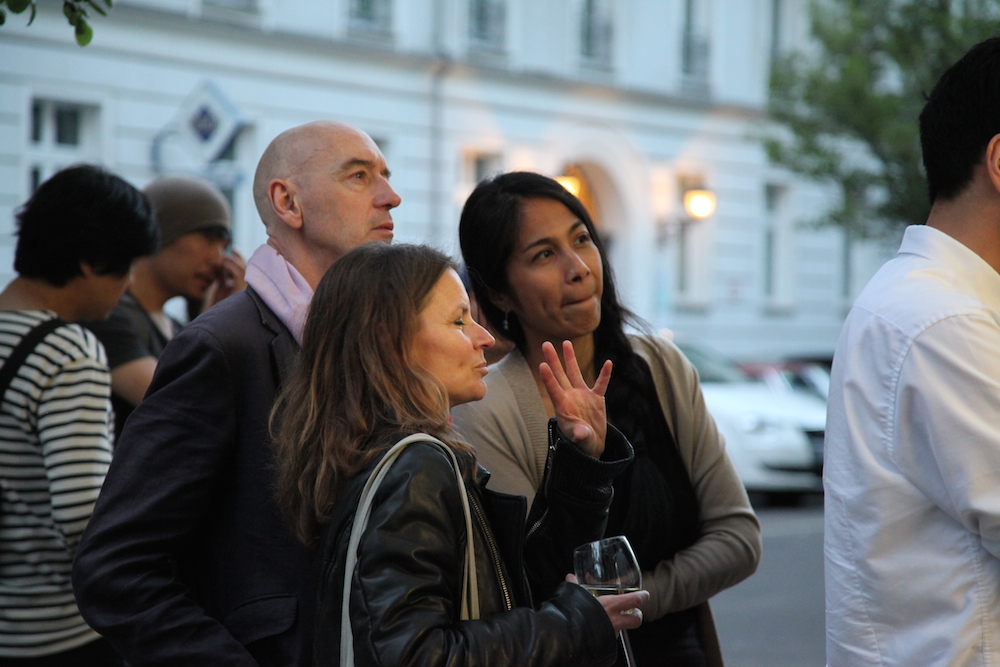
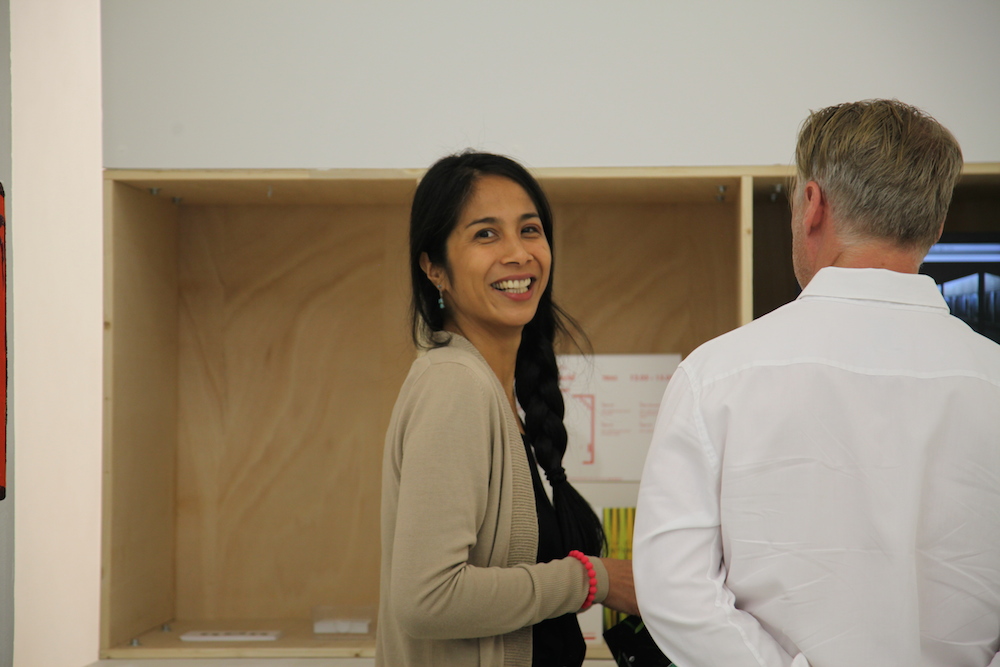
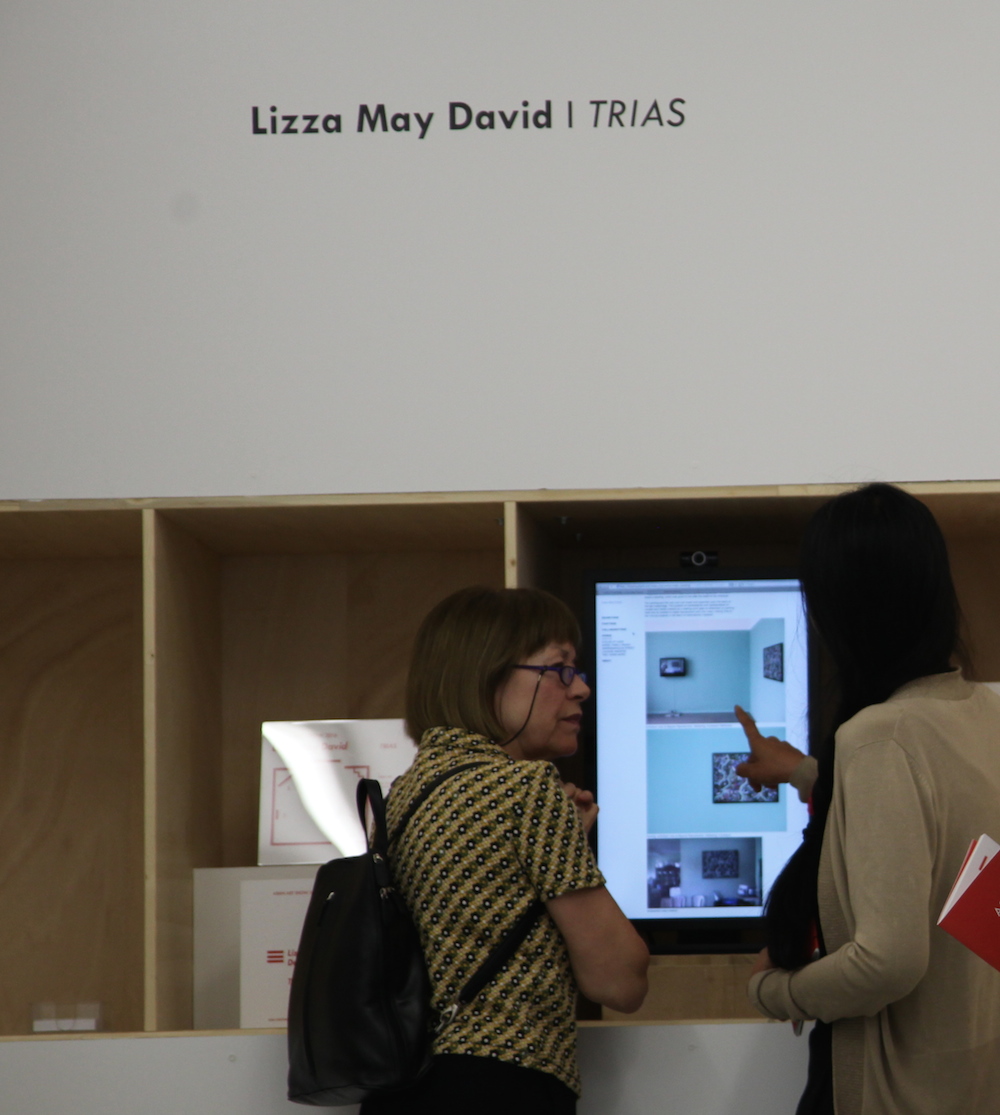
LIZZA MAY DAVID – TRIAS
LIZZA MAY DAVID
Visual artist Lizza May David (1975, Quezon City, Philippines) is based in Berlin, Germany. She studied at the Academy of Fine Arts Nuremberg (Germany), École des Beaux Arts de Lyon (France) and University of Arts Berlin. In her previous works she has considered the reappropriation of Philippine modern painting (particularly those found in institutional collections in the Philippines). She confronts questions of abstraction and historiography relating to simultaneities and transnational aesthetic interactions. She is interested in how social and cultural capital is represented and how to highlight its marginal aspects. Within an architectural framework she works with dichotomies of display and issues of visibility/invisibilities. Much of her previous work is autobiographical and investigates issues of identity, labor/migration and memory.
Exploratory in nature, the paintings today reflect her contextual artistic disposition, confronting formalism and abstraction. She is aware of understanding the canvas as sensorium for social change within specific localities looking at the paintings’ materiality, sensualism, proximity and questions of non-/representation through processual painting practice. Seeing the canvas as a subject, like in her documentary films, she follows the image wherever it takes her. The artist anchors her approach in the proximity of artistic resource, as well as her responses to the physicality of the painting ground and the limits of the medium.
Artist’s statement:
My artistic interest started from the investigation of my own biography. I seek to understand how the family relates to society, ideas about leaving home and often references the relationship between the personal; the political and the private and public. I was born in the Philippines and then travelled frequently with my parents who worked in Nigeria, Tunisia, Hong Kong beside settling in Germany where I spent most of my upbringing. I looked to my memories of childhood to learn about the facets of migration, capitalism, work and shifting modes of identity within the flux of changing contexts. Looking to my personal archive of photography, sound recordings, letters and interviews I investigated the relationship between the content of these materials and their historical significance. After working with these mediums, my practice of painting today allows me to rediscover an additional mode of production; but seeing it from an empowered subjectivity and modality. I aim to investigate notions of image production and question sensitive issues of the periphery/central and art historiography.
Documentary filming was one of the tools to research working conditions of the Overseas Filipino Workers (OFW), like in TWO YEARS MORE, 2006 or CYCLES OF CARE, 2011 – in other words to arise the issue of commodification of labor and forms of resistance. In MODEL FAMILY AWARD, 2008, I looked more into how family relationships are constructed and performed within this global human exchange, relating to the idea of an ‘imagined community.’1). Later this lead to more abstract works about the transnational networks of anarchist movements in the 19th century, for example in SIMOUN, 2012, or issues of gaze and transnational desire in post-colonial photography addressed in my 2011 work THE UNKNOWN FILIPINA.
www.lizzamaydavid.com
︎ EXHIBITION
LIZZA MAY DAVID
Visual artist Lizza May David (1975, Quezon City, Philippines) is based in Berlin, Germany. She studied at the Academy of Fine Arts Nuremberg (Germany), École des Beaux Arts de Lyon (France) and University of Arts Berlin. In her previous works she has considered the reappropriation of Philippine modern painting (particularly those found in institutional collections in the Philippines). She confronts questions of abstraction and historiography relating to simultaneities and transnational aesthetic interactions. She is interested in how social and cultural capital is represented and how to highlight its marginal aspects. Within an architectural framework she works with dichotomies of display and issues of visibility/invisibilities. Much of her previous work is autobiographical and investigates issues of identity, labor/migration and memory.
Exploratory in nature, the paintings today reflect her contextual artistic disposition, confronting formalism and abstraction. She is aware of understanding the canvas as sensorium for social change within specific localities looking at the paintings’ materiality, sensualism, proximity and questions of non-/representation through processual painting practice. Seeing the canvas as a subject, like in her documentary films, she follows the image wherever it takes her. The artist anchors her approach in the proximity of artistic resource, as well as her responses to the physicality of the painting ground and the limits of the medium.
Artist’s statement:
My artistic interest started from the investigation of my own biography. I seek to understand how the family relates to society, ideas about leaving home and often references the relationship between the personal; the political and the private and public. I was born in the Philippines and then travelled frequently with my parents who worked in Nigeria, Tunisia, Hong Kong beside settling in Germany where I spent most of my upbringing. I looked to my memories of childhood to learn about the facets of migration, capitalism, work and shifting modes of identity within the flux of changing contexts. Looking to my personal archive of photography, sound recordings, letters and interviews I investigated the relationship between the content of these materials and their historical significance. After working with these mediums, my practice of painting today allows me to rediscover an additional mode of production; but seeing it from an empowered subjectivity and modality. I aim to investigate notions of image production and question sensitive issues of the periphery/central and art historiography.
Documentary filming was one of the tools to research working conditions of the Overseas Filipino Workers (OFW), like in TWO YEARS MORE, 2006 or CYCLES OF CARE, 2011 – in other words to arise the issue of commodification of labor and forms of resistance. In MODEL FAMILY AWARD, 2008, I looked more into how family relationships are constructed and performed within this global human exchange, relating to the idea of an ‘imagined community.’1). Later this lead to more abstract works about the transnational networks of anarchist movements in the 19th century, for example in SIMOUN, 2012, or issues of gaze and transnational desire in post-colonial photography addressed in my 2011 work THE UNKNOWN FILIPINA.
www.lizzamaydavid.com
︎ EXHIBITION
OPENING
12.05.16 at 7pm
ARTIST
Lizza May David
DURATION
12.05.16 – 16.05.16
CATEGORY
AAS-2016
12.05.16 at 7pm
ARTIST
Lizza May David
DURATION
12.05.16 – 16.05.16
CATEGORY
AAS-2016